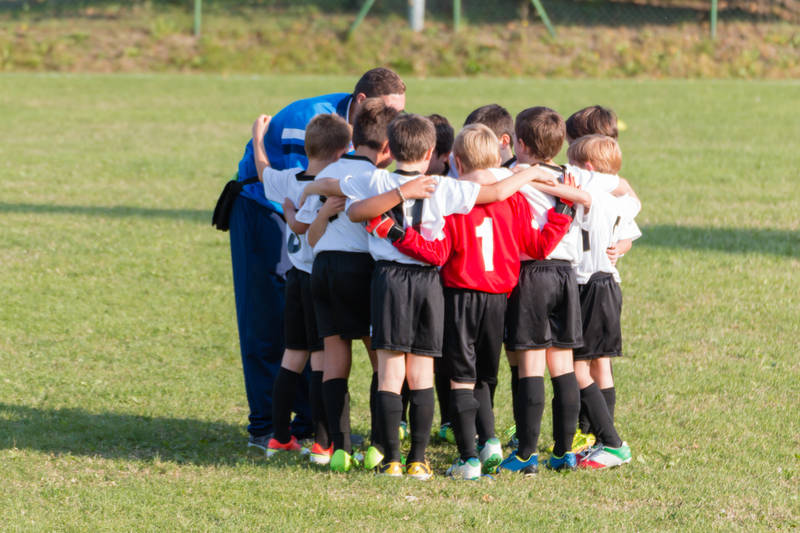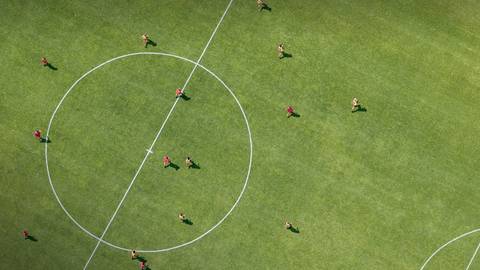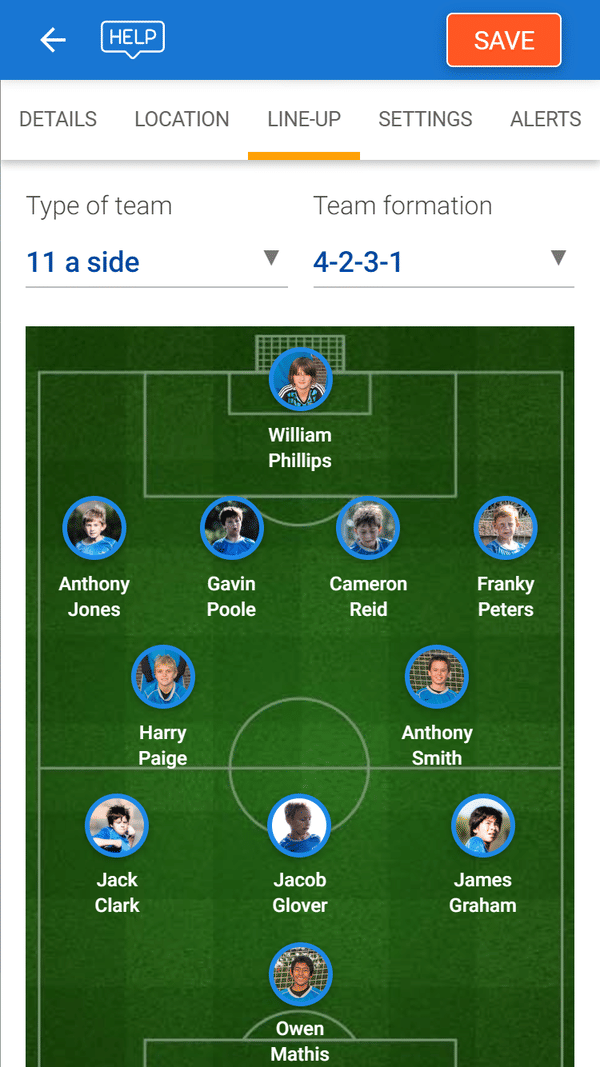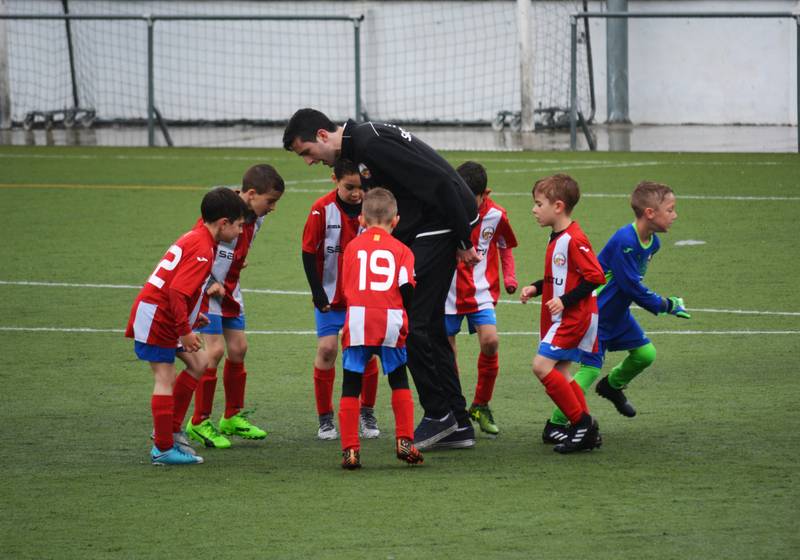U8 football represents a pivotal stage in young players' development where children aged 7-8 learn fundamental skills through fun, engaging activities. At this age, children don't participate in competitive leagues but instead focus on skill acquisition through training sessions and a limited number of trophy events throughout the season. Well-structured U8 training sessions typically include short activities that develop footwork, balance and technique while maintaining high engagement levels.
Football for this age group emphasises enjoyment and basic skill development rather than competitive results. Effective coaching for U8s incorporates activities like kick-ups for activation, technical games that improve coordination, and small-sided matches that maximise ball contact time. These sessions are specifically designed to be accessible for young players while building the foundation for more advanced skills.
Coaches working with U8 teams benefit from using varied, high-energy drills that maintain children's interest while simultaneously developing their football abilities. The best training programmes balance enjoyment with technical development, ensuring players remain enthusiastic about the sport as they progress. Many soccer coaches find that short, focused activities with clear objectives yield the best results with this age group.
Understanding U8 Football
U8 football represents a crucial early stage in youth player development. During this phase, children are building fundamental skills while beginning to grasp basic tactical concepts in a modified format that suits their developmental needs.
Key Concepts and Rules
U8 football follows specific guidelines designed for younger players. Teams typically play in a 5v5 or 4v4 format on smaller pitches with appropriately sized goals. Matches consist of shorter periods, usually 7-10 minutes per quarter, allowing children to maintain concentration and energy.
Players must be under 8 years of age as of midnight on 31st August in the playing season. The offside rule is not applied at this level, encouraging attacking play. Goalkeepers are optional in some U8 formats, promoting pitch player development.
Games often feature rolling substitutions to ensure equal playing time. Corner kicks, goal kicks, and throw-ins are simplified versions of adult rules. The focus remains on participation rather than competitive outcomes.
Player Development Stages
At U8 level, players are transitioning from the completely fundamental stage to early tactical understanding. Children at this age demonstrate improved coordination and spatial awareness compared to U6 players. They can now process basic positional concepts and work in small units.
Training sessions should emphasise high ball contact – ideally 1 ball per player for significant portions of practice. Drills often involve players split into small teams working from different corners of a practice area, taking turns to perform simple skills.
Players should be encouraged to "hunt for the ball like lions" when not in possession, developing an early understanding of pressing. Coaches should focus on building confidence, fundamental techniques and joyful engagement rather than complex tactical instructions.
Physical development varies significantly between children at this age, requiring personalised attention. The soccer experience at U8 should nurture a love for the game through positive reinforcement and abundant playing opportunities.
Preparing for the Season
Preparation for the U8 football season requires thoughtful planning of training programmes and meaningful involvement from coaches and parents alike. The right approach can significantly impact player development and team cohesion.
Effective Training Programs
Developing an appropriate training programme for U8 players should focus on fundamental skills in a fun environment. Sessions ought to be structured yet engaging, with each lasting 45-60 minutes to match young players' attention spans.
Include a variety of drills that develop basic techniques:
- Ball control and dribbling
- Simple passing exercises
- Shooting activities with appropriate-sized goals
- Small-sided games (3v3 or 4v4)
Conditioning should be incorporated naturally through game-based activities rather than isolated fitness drills. Children at this age respond better to learning through play rather than repetitive exercises.
Weather conditions must be considered when planning outdoor sessions, particularly during pre-season. Have indoor alternatives ready for inclement weather to maintain consistency in your programme.
Role of Adult Members in Player Growth
Coaches and parents play crucial roles in supporting U8 players throughout the season. Their approach significantly influences children's enjoyment and development.
Adults should:
- Provide encouragement rather than criticism
- Focus on effort over match results
- Model positive behaviour on the sidelines
- Communicate clearly using age-appropriate language
Parents can support training by practising basic skills at home with their children. Even 15 minutes of casual ball work several times weekly can dramatically improve player development.
Coaches should maintain regular communication with parents about training objectives and player progress. This collaborative approach ensures consistent messaging about expectations and development goals.
Remember that at U8 level, football should remain enjoyable above all else. The primary goal is fostering a love for the game that will encourage continued participation well beyond this initial season.
Teams and Competitions
At U8 level, football becomes more structured with organised teams and regular fixtures. Children begin to understand teamwork, positions and basic match rules while experiencing the excitement of competitive play.
Organising a Team
Setting up a U8 football team requires careful planning and dedication. Each team typically consists of 5-7 players during matches, with squads often containing 8-10 children to allow for rotations. Teams need a minimum of one qualified coach who understands child development and possesses basic football knowledge.
Kit requirements are straightforward—matching shirts, shorts, and socks, with appropriate footwear for the playing surface. Shin pads are mandatory for all players.
Registration with local leagues usually occurs between May and July for the upcoming season. Most leagues charge a team registration fee (£50-£150) and require player registration forms with proof of age.
Training sessions typically run once or twice weekly for 45-60 minutes, focusing on fun activities that develop fundamental skills rather than complex tactical instruction.
Fixture Schedules and Results
U8 fixtures typically follow a structured format with matches played on weekend mornings. Games usually consist of four 10-minute quarters or two 15-minute halves, allowing ample playing time for all squad members.
Most leagues publish fixtures several weeks in advance on their websites or through dedicated apps. These platforms often include interactive maps to help parents locate unfamiliar playing fields.
Results at U8 level are recorded differently across regions. Some leagues track scores but don't publish league tables, while others operate on a development-focused model without formal result recording.
Many clubs host tournaments during school holidays, particularly around Easter and summer breaks. These events offer excellent opportunities for teams to experience different opposition and playing styles.
End-of-season statistics may be kept privately by coaches to track team progress, though the focus remains firmly on development rather than win-loss records. Individual achievements might be recognised through player-of-the-match awards that celebrate effort and improvement rather than strictly technical ability.
Show less












